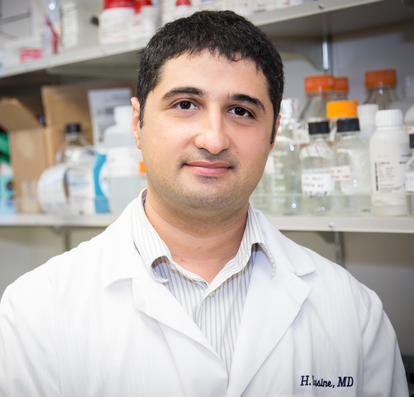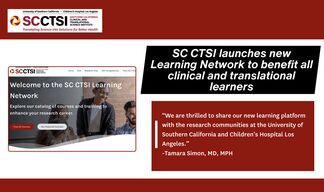SC CTSI-supported team secures $6.7 million to improve understanding of Alzheimer's risk factors
The research team was supported by the SC CTSI Biostatistics, Epidemiology, and Study Design (BERD) team.
The research team was supported by the SC CTSI Biostatistics, Epidemiology, and Study Design (BERD) team.
A Keck School of Medicine of USC researcher has been awarded two National Institutes of Health grants totaling $6.7 million to conduct research that aims to further the understanding of a genotype present in people with heightened risk of Alzheimer’s disease.
Assistant Professor Hussein Yassine and his team, in partnership with the Alzheimer Disease Research Center of USC, will study how lipid metabolism varies by apolipoprotein (APOE) genotype in persons at risk for Alzheimer’s.

Hussein Yassine, MD
The APOE4 gene is a strong risk factor for Alzheimer’s, but how it is involved in the disease remains a mystery, Yassine said.
In the first project, the team hopes to obtain information to help tailor omega-3 supplementation in people who carry the APOE4 gene to help prevent or delay the onset of Alzheimer’s.
In the second project, Yassine will monitor the functional activity of APOE in cerebrospinal fluid among persons with and without the APOE4 gene for five years.
The USC team includes: Helena Chui, chair and professor of neurology; Lon Schneider, professor of psychiatry and the behavioral sciences; Wendy Mack, professor of preventive medicine; Meredith Braskie, assistant professor of research neurology; Duke Han, associate professor of family medicine (clinical scholar); Meng Law, professor of radiology; and Paul Thompson, professor of ophthalmology, neurology, psychiatry and the behavioral sciences, radiology and engineering. Collaborators from Huntington Medical Research Institutes in Pasadena include Michael Harrington and Alfred Fonteh.
Story was originally posted on USC.edu.



